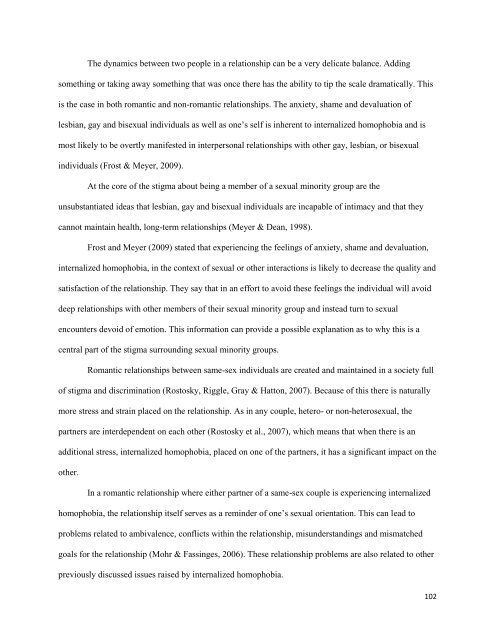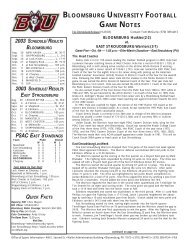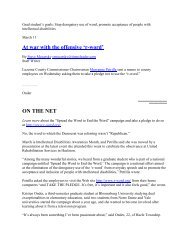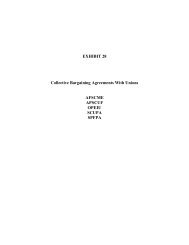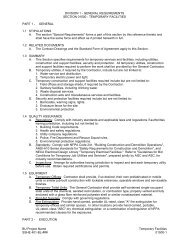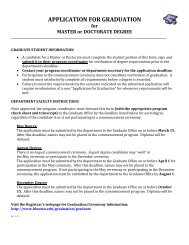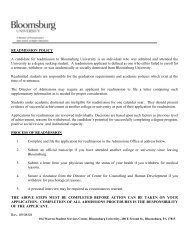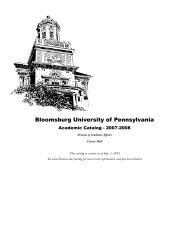Human Rights at Home and Abroad: Past, Present, and Future
Human Rights at Home and Abroad: Past, Present, and Future
Human Rights at Home and Abroad: Past, Present, and Future
You also want an ePaper? Increase the reach of your titles
YUMPU automatically turns print PDFs into web optimized ePapers that Google loves.
The dynamics between two people in a rel<strong>at</strong>ionship can be a very delic<strong>at</strong>e balance. Adding<br />
something or taking away something th<strong>at</strong> was once there has the ability to tip the scale dram<strong>at</strong>ically. This<br />
is the case in both romantic <strong>and</strong> non-romantic rel<strong>at</strong>ionships. The anxiety, shame <strong>and</strong> devalu<strong>at</strong>ion of<br />
lesbian, gay <strong>and</strong> bisexual individuals as well as one‘s self is inherent to internalized homophobia <strong>and</strong> is<br />
most likely to be overtly manifested in interpersonal rel<strong>at</strong>ionships with other gay, lesbian, or bisexual<br />
individuals (Frost & Meyer, 2009).<br />
At the core of the stigma about being a member of a sexual minority group are the<br />
unsubstanti<strong>at</strong>ed ideas th<strong>at</strong> lesbian, gay <strong>and</strong> bisexual individuals are incapable of intimacy <strong>and</strong> th<strong>at</strong> they<br />
cannot maintain health, long-term rel<strong>at</strong>ionships (Meyer & Dean, 1998).<br />
Frost <strong>and</strong> Meyer (2009) st<strong>at</strong>ed th<strong>at</strong> experiencing the feelings of anxiety, shame <strong>and</strong> devalu<strong>at</strong>ion,<br />
internalized homophobia, in the context of sexual or other interactions is likely to decrease the quality <strong>and</strong><br />
s<strong>at</strong>isfaction of the rel<strong>at</strong>ionship. They say th<strong>at</strong> in an effort to avoid these feelings the individual will avoid<br />
deep rel<strong>at</strong>ionships with other members of their sexual minority group <strong>and</strong> instead turn to sexual<br />
encounters devoid of emotion. This inform<strong>at</strong>ion can provide a possible explan<strong>at</strong>ion as to why this is a<br />
central part of the stigma surrounding sexual minority groups.<br />
Romantic rel<strong>at</strong>ionships between same-sex individuals are cre<strong>at</strong>ed <strong>and</strong> maintained in a society full<br />
of stigma <strong>and</strong> discrimin<strong>at</strong>ion (Rostosky, Riggle, Gray & H<strong>at</strong>ton, 2007). Because of this there is n<strong>at</strong>urally<br />
more stress <strong>and</strong> strain placed on the rel<strong>at</strong>ionship. As in any couple, hetero- or non-heterosexual, the<br />
partners are interdependent on each other (Rostosky et al., 2007), which means th<strong>at</strong> when there is an<br />
additional stress, internalized homophobia, placed on one of the partners, it has a significant impact on the<br />
other.<br />
In a romantic rel<strong>at</strong>ionship where either partner of a same-sex couple is experiencing internalized<br />
homophobia, the rel<strong>at</strong>ionship itself serves as a reminder of one‘s sexual orient<strong>at</strong>ion. This can lead to<br />
problems rel<strong>at</strong>ed to ambivalence, conflicts within the rel<strong>at</strong>ionship, misunderst<strong>and</strong>ings <strong>and</strong> mism<strong>at</strong>ched<br />
goals for the rel<strong>at</strong>ionship (Mohr & Fassinges, 2006). These rel<strong>at</strong>ionship problems are also rel<strong>at</strong>ed to other<br />
previously discussed issues raised by internalized homophobia.<br />
102


